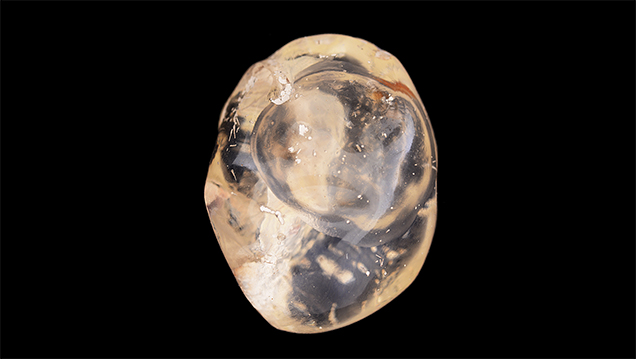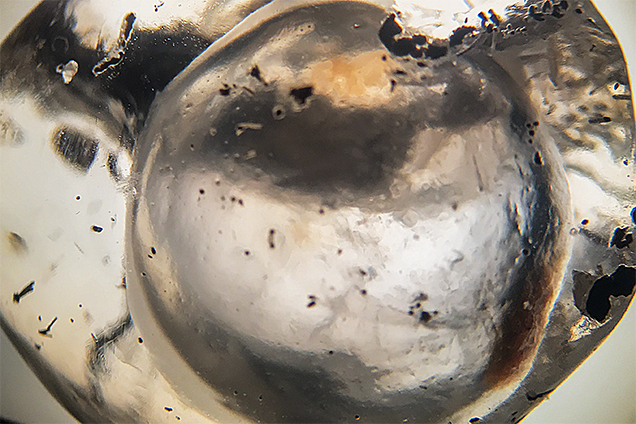Mexican Opal with Large Fluid Inclusion

Although opals generally contain water in their structure, fluid inclusions large enough to be resolved with the microscope are rare; those that can be seen with the unaided eye are exceedingly rare. While at the JCK Show in Las Vegas, the author examined a most unusual common opal with a very large eye-visible fluid inclusion (figure 1). The fluid cavity was approximately 14 mm in diameter, and most of the space inside was occupied by a large gas bubble. An aqueous liquid could clearly be observed wetting the walls of the cavity, along with some unknown solid particles (figure 2). Since this fluid inclusion contained solid, liquid, and gaseous phases, it is appropriately described as a three-phase inclusion. According to Javier Lopez Ávila, the stone’s owner, this rare opal specimen was mined from the San Simon mine in Jalisco, Mexico, by Opalos de México. It is the first opal with a large fluid inclusion that he has observed from this deposit. This rare inclusion in Mexican opal is an interesting gemological oddity that any collector can appreciate.




